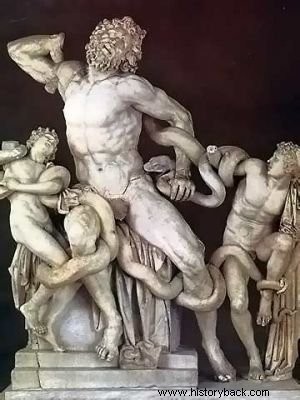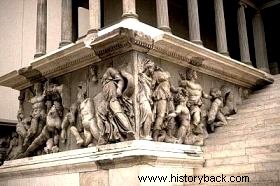TheHellenistic Period (or Hellenism ) was a period of history between the 3rd and 2nd centuries BC. in which the Greeks were under the rule of the Macedonian Empire.
The Greek influence was so great that, after the fall of the Empire, the Hellenistic culture continued to predominate in all the territories previously dominated by them.
Between the 2nd and 1st centuries BC, the Hellenistic kingdoms were gradually conquered by the Romans.
Macedonian Empire
The Macedonians inhabited the region situated in northern Greece. For a long time these people were called barbarians by the inhabitants of Hellas, a region between central and northern Greece – whose inhabitants were called Hellenes – although, like them, they were of Indo-European origin.
In 338 BC the Greeks were defeated at the Battle of Chaeronea, by Macedonian forces, which in a short time dominated all of Greece.
In 336 BC, Emperor Philip II is assassinated, and his son Alexander the Great takes the throne.>
Alexander the Great's empire spanned Egypt, Mesopotamia, Syria, Persia, and India. These conquests helped form a new civilization.
Adopting Greek as a common language, a process of cultural interpenetration began, where some institutions remained close to the Greek standard and in others oriental elements prevailed. It is with this mixed civilization that the Hellenistic period begins.
After Alexander's death, leaving no heirs, the empire was divided among his generals, forming three great kingdoms:
- Ptolemy (Egypt, Phoenicia and Palestine);
- Cassander (Macedonia and Greece);
- Seleucus (Persia, Mesopotamia, Syria and Asia Minor).
Thus, dynasties of absolutist sovereigns emerged that weakened the unity maintained in Alexander's time and gradually fell under Roman rule.
See also:Ancient GreeceThe Hellenistic Civilization
Hellenistic civilization was the result of the fusion of several societies, mainly Greek, Persian and Egyptian.
Alexander the Great's great cultural work survived the breakup of his territorial empire.
The expansionist movement promoted by Alexander was responsible for the diffusion of Greek culture throughout the East, founding cities (several times baptized with the name of Alexandria) that became true centers for the diffusion of Greek culture in the East.
Hellenistic Culture
In this context, Greek elements ended up merging with local cultures. This process was called Hellenism and the Greek culture mixed with oriental elements gave rise to the Hellenistic Culture, in a reference to the name as the Greeks called themselves - Hellenes.
The Hellenes developed painting and sculpture, where they perfectly portrayed nature and the movement of bodies. An example is the marble sculpture, "Laocoon and His Sons ".

In the Middle East, the main centers of Hellenistic culture were Alexandria (in Egypt), Pergamum (Asia Minor) and the island of Rhodes in the Aegean Sea, with its great marble palaces, wide streets, schools, libraries, theaters, academies, museums and even a Research Institute.
Its architecture impresses with its wealth and size, such as the altar of Zeus in Pergamum (180 BC), which has been reconstructed and is in the Berlin Museum.

Hellenistic Philosophy
Hellenistic philosophical thought was dominated by two currents:
- Stoicism:which emphasized firmness of spirit, indifference to pain, submission to the natural order of things and independence from material goods;
- Cynicism:who had total contempt for material goods and pleasure;
- Epicureanism:which advised the pursuit of pleasure.
There was also the Skepticism that advised everyone to doubt everything.
